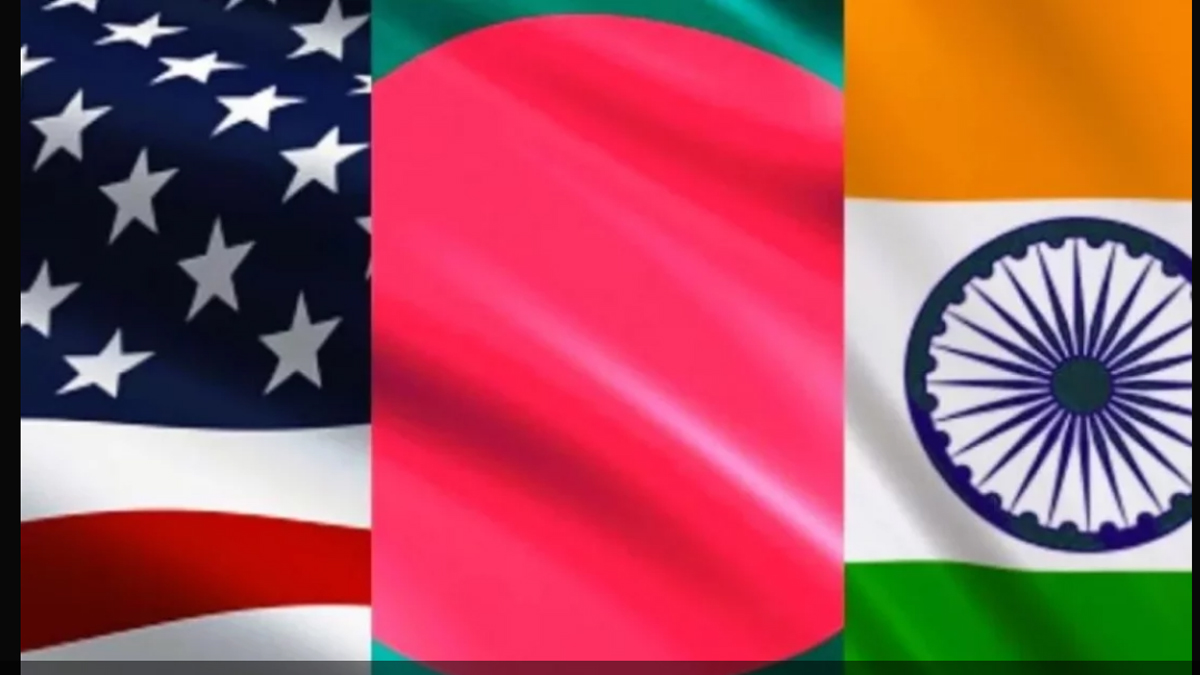Reading Time: 4 minutes
There have been several reports in the domestic and foreign media that India has sent a clear diplomatic message criticizing the role of the United States (US) ahead of the upcoming general elections in Bangladesh.
However, none of these reports directly quoted any Indian government source. Hence, some people are claiming that they are “fabricated news”.
Even Bangladesh’s main opposition party BNP has a similar stance.
However, the reality is that India has very clearly conveyed its objections to the visa policy that the US imposed on Bangladesh.
These issues have been raised both in writing on the diplomatic channel and verbally in discussions between the two countries’ top officials. However, India has not issued any official statement in this regard due to diplomatic obligations.
Explaining the issue, a senior official of Delhi’s South Block said: “There is no reason to think that we will not do anything, where India’s strategic interests are directly involved. But if we directly and publicly address the matter, it could be viewed as if India was interfering in the internal politics of Bangladesh or trying to unnecessarily interfere in the visa policy of a third country.”
To avoid that unwanted controversy or criticism, India has decided to remain silent on the issue, at least publicly, they said.
Several Bangladesh observers, former diplomats, and experts close to the ruling party in New Delhi said that they were 100% certain that India had made its objections clear to the US.
Pinak Ranjan Chakravarty, former high commissioner of India in Dhaka, said: “The US uses the issue of democracy or human rights as a political or diplomatic tool, but it is nothing new. When I was in the service, even in the 1990s, I saw how they wanted to achieve their interests on the nuclear issue by pressuring India about human rights.
“However, their plan was not successful. But now they want to apply the same old trick for Bangladesh, I think. They certainly have some other motive behind it, though it’s not very clear.”
Chakravarty added that the relationship between India and the US has changed in the past one or two decades, and they hold regular Indo-US dialogues.
“India must have told the US, not to pressure Bangladesh too much – as it will not benefit anyone. It might even hamper the regional peace and stability,” he added.
Under the leadership of Sheikh Hasina, Bangladesh has been moving forward in the last decade and a half in a liberal and secular polity. “My reading is that this is exactly what we told Washington.”
Sreeradha Datta
Sreeradha Datta, Bangladesh researcher, Jindal School of International Affairs, said: “Look, I have no doubt that India is playing a ‘China card’ here. I mean, India wants to send America a clear message, which is the more you want to corner the government in Bangladesh in the name of democracy, the more they will be forced to turn to China.”
She added that a similar incident had already happened in Myanmar. “Yet America has not learned any lessons from it.”
The query that might come up is why India if it has expressed its opposition to the US, is not making a public declaration about it, Datta added.
“The answer is that this cannot be done with an independent sovereign and more than fifty-year-old state! Bangladesh will not like it either. On the contrary, if India makes a statement about it, it will convey that ‘Bangladesh has nothing to worry about, India is dealing with this with America!’ And so Delhi’s silence is also understandable,” she explained.
Dr Suvrokamal Dutta, foreign policy expert, said there is a significant indication that India is countering the US stance on the Bangladesh issue. This is evident from the fact that the US’ eagerness regarding the Bangladesh elections has decreased.
“My sources say that India is slowly able to convince the US administration that unwarranted interference in Bangladesh is a loss to everyone. Even the language used by the US ambassador in Dhaka has taken on a more gentle tone,” he said.
“And why shouldn’t India talk about it? Our past experience shows that whenever the BNP or its allianceJamaat-e-Islami came to power in Bangladesh, bilateral relations have been disrupted, fundamentalist forces emerged, and Hindus suffered – and the effects of that instability have also reached India,” he said.
So there is nothing wrong in warning America in advance about this. “As far as I know, That’s exactly what India is doing – and doing it with 100% diplomatic prudence.”
The US visa policy
US Secretary of State Antony J Blinken on May announced a new visa policy for Bangladeshi individuals believed to be responsible for, or complicit in, undermining the democratic election process.
The individuals who fall under this policy include current and former Bangladeshi officials, members of pro-government and opposition political parties, and members of law enforcement, the judiciary, and security services, Blinken said in a statement.
In a Tweet, he added that the visa restrictions would apply to the immediate family members of such persons.
The policy was declared under Section 212(a)(3)(C) (“3C”) of the Immigration and Nationality Act to support Bangladesh’s goal of holding free, fair, and peaceful national elections.
The actions to be treated as a disqualification for a US visa include vote rigging, voter intimidation, the use of violence to prevent people from exercising their right to freedoms of association and peaceful assembly, and the use of measures designed to prevent political parties, voters, civil society, or the media from disseminating their views.

